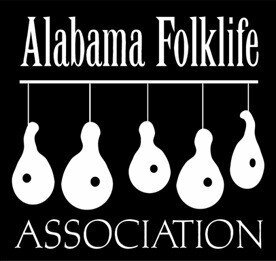Elevating Refugee Voices: Saul & Barbara
Keyhole Photo
When Saul and Barbara left their home country of Cuba in 2022, they first had to pass through Nicaragua, Honduras, Guatemala, and Mexico before arriving in the US. They traveled in all kinds of ways: by plane, bus, boat, foot, and even by horse. It was a long, arduous journey, and they had two children in tow. At times they were chased by police and had to flee. They climbed steep landscapes, forded rivers, it was hot and they sometimes lacked water. The trip took two weeks.
Barbara had prepared their daughter, Keily, then age five, by framing the trip as an adventure, so Keily treated it as one, sometimes laughing when they had to run or roll down hills. For their son, Kevin, Saul says, the trip turned him into a man at age fourteen. Saul adds that if he had known how hard it would be, he would never have put his children through it. He looks back in disbelief, that they endured it. Yet, he and Barbara are nothing but grateful to be in the US. They miss their families, but they never want to return to Cuba.
Life in Cuba was always hard, Saul and Barbara say, but when Castro was in charge, the government tried to keep the people sated by making small concessions, giving them just enough access to opportunities, work, school, and money, to keep them from protesting the dictatorship. Now, the government doesn’t bother, and life is brutal. The government controls every aspect of life. Oppression is total, Saul and Barbara say. There is no freedom of speech, action, or even of thought, which makes everyone live in constant fear. “You’re afraid of everything,” Saul says.
One of the worst parts of living in Cuba, Saul and Barbara say, is not knowing who to trust. Neighbors, colleagues, even friends, will report you if you speak against the government, or will make false claims. “Even close friends you grew up with,” Saul says. “They can change. You can trust no one.” The government has even infiltrated the churches, they say, so you can’t speak your mind at church, or trust fellow churchgoers.
During the Covid-19 pandemic, everything got worse, and people grew angrier over government decisions that failed to protect the health of citizens. Food and health care became extremely expensive and inaccessible, which made life particularly difficult for seniors. Saul’s discontent began to show at work. He was a butcher, and his colleagues started scrutinizing and constantly inspecting his work. Finding nothing wrong, they made false claims that resulted in a “trial” outside of the regular justice system where the accuser decides the fate of the accused.
Saul felt compelled to leave the country. Not only for himself, but for his children’s future. In addition to the governmental oppression and subpar schools, Kevin was then in ninth grade, the age when boys are mandated to enroll in the army for service at age seventeen.
After being in the US for just over a year, Saul and Barbara are still unable to work due to the particular VISA they hold, but they express no frustration or restlessness, only gratitude. “We have no words to describe it,” Saul says. “We’re so happy in this country. It’s a country that cares about its people.” The kids are doing well, in first and tenth grade. They learned English quickly, and “they have friends. They can talk, they can express themselves,” Barbara says. Sometimes the kids are still amazed by the things they’re allowed to say and do after living “in fear and anxiety for so long.”
Now, Kevin and Keily can study hard and find work in whatever field they choose, Saul says, whereas in Cuba, it didn’t matter how hard you studied. If you didn’t have the government connections, he says, you would never find good work. “It’s really a shame,” he adds. “Because Cuba is a beautiful country.”

